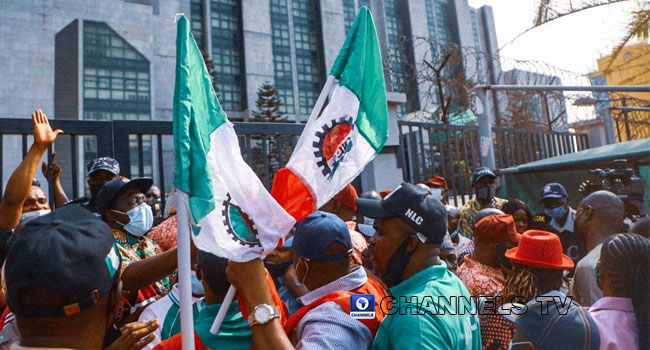In a dramatic turn of events, Nigeria woke up to a nationwide blackout as the Transmission Company of Nigeria (TCN) confirmed that its workers’ union had shut down the national grid. The blackout, which occurred at approximately 2:19 a.m. on June 3, 2024, has left homes, businesses, and essential services without electricity.

According to Ndidi Mbah, the TCN General Manager of Public Affairs, the labor union’s actions led to the collapse of the national grid. The Benin Transmission Operator, part of the Independent System Operations unit of TCN, reported that operators were forcibly removed from the control room around 1:15 a.m. In a disturbing turn of events, some staff members were beaten, and others were wounded during the confrontation. As a result, the Benin Area Control Center was brought to a complete standstill.
The impact extended beyond Benin. Several other transmission substations, including Ganmo, Ayede, Olorunsogo, Akangba, and Osogbo, were also shut down by the Labour Union. Additionally, transmission lines were deliberately opened, exacerbating the crisis.
The disruption wasn’t limited to the transmission side. Power-generating units across different stations faced forced shutdowns. The Jebba generating station, for instance, had to shut down one of its units, while three others in the same substation followed suit due to high frequency and system instability.
Despite the challenges, the TCN swiftly initiated grid recovery. At approximately 3:23 a.m., they began using the Shiroro substation to feed transmission lines supplying bulk electricity to the Katampe Transmission Substation. However, the labor union’s obstruction continues to hinder full grid restoration.
The nationwide blackout coincided with the commencement of a nationwide strike by Nigeria’s labor unions. The strike aims to pressure the government into addressing critical issues:
1. New Minimum Wage
The unions demand an agreement on a new minimum wage for workers. Negotiations have been intense, with the unions initially proposing N615,000 and eventually agreeing to N494,000. The government, however, insists on N60,000, leading to a deadlock.
2. Electricity Price Increase
The strike also seeks a review of the recent increase in electricity prices for consumers. With rising costs affecting households and businesses, this issue has become a focal point of discontent.
On Sunday, representatives from the federal government, the National Assembly, the Nigeria Labour Congress (NLC), and the Trade Union Congress (TUC) engaged in closed-door talks. Unfortunately, the meeting ended without a resolution. In response, the NLC and TUC declared an indefinite strike, urging affiliated bodies to mobilize members for full compliance.
As the nation grapples with darkness and uncertainty, the success of the strike hinges on collective determination. Workers from various sectors, including doctors, university lecturers, airport staff, and electricity workers, are expected to join the protest. Their resolve underscores the importance of addressing critical issues and finding common ground for the benefit of all Nigerians.




